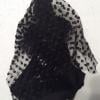Search the Community
Showing results for 'reactive hypo'.
Found 1,420 results
-


Anyone with hyper/hypothyroidism?
perksgirl119 replied to RellaBelle's topic in POST-Operation Weight Loss Surgery Q&A
I'm hypo had half of mines removed due to goiter I take pills for it daily was just sleeved on 6th of September Sent from my iPhone using the BariatricPal App -


When do you delete your online dating profile?
gowalking replied to SleeveSoon's topic in The Lounge
Apologizing in advance for the length of this post but here goes my 'deleting my online profile' story: So...I met a guy on Zoosk in the spring of 2015. No attraction on my part, and every time we went out, I said to myself that I would end it. Problem was...I really enjoyed spending time with him. Eventually we did become a couple and I hid my profile rather than delete it. Glad I did because after nine months of dating, he blindsided me and dumped me. We were not in love and I'm fairly certain in time, the relationship would have limped along till one of us made the move to end it. But because I wasn't prepared, it hit me like a ton of bricks and brought up all kinds of rejection issues for me and well.....you ladies know how this part goes...what did I do wrong?, why was I not good enough?, yada yada yada. What I did know when the relationship was over, was that I wanted to be with someone so crying hysterically, I resubscribed back onto Zoosk and JDate, which I had also shut down but not deleted my profile from. To my complete surprise, I met a man on JDate in June and we have been having a great time together. This relationship is nothing like with the other guy. This new one and I have so much in common and we enjoy talking about all kinds of things and doing so many of the same things. I wrote on another thread that he might be the lid to my pot and so far, it's going gangbusters. I know he deleted his profile from both Match and JDate a few weeks ago and knew that I had not. It wasn't that I was dating anyone else...I just wasn't ready to shut it down again. Last night I went onto Zoosk because I was getting email notifications from them and on a whim, went onto the site. Just for the heck of it, I looked up former boyfriend's profile...which he had not reactivated when I first went back onto Zoosk..and sure enough, he popped up this time. I looked at his profile..his new profile by the way...and the updated pictures on it. And that's when I knew...time to shut down my profile. It's not that I don't hope he finds someone...I'm not that petty. I just know more than ever now, that he's my past, and it's time to focus on my future..and with this new man in particular. Now...if I could just figure out how I managed to send old boyfriend a friggin' friend request on FB, it would be great. I swear I have no idea how I did that, but I did. I can't unfriend him now...not after sending that request...even by accident. Oh..and why he accepted that request is beyond me. But if I'm lucky, he'll see the pictures of me and the new guy, and delete me from his feed... -


Time for bit of FUN! Post some silly pictures of yourself if you dare.
OzRoo replied to OzRoo's topic in Rants & Raves
@@WLSResources/ClothingExch Because after radioactive treatment my thyroid got destroyed and stopped functioning. I had RAI early August 2015, and by December 2015 I was Hypo thyroid, at TSH 17.3 (when I was Hyper, TSH was less than 0.01) Hence my now life-time thyroid hormone replacement. At surgery, my TSH was 1-1.5, few weeks later it went to 0.6 and I started feeling unwell again. Since the past 3 months, TSH has been less than 0.01 again, due to continuing weight loss. So I am back to Hyper thyroid symptoms, not all of them, but few troublesome ones. Hence dosage adjustments, but they take weeks to work. I nursed before, so I know a fair bit about different meds, and so I tried my anti-thyroid drugs again, and they certainly helped me, at least to sleep! Anyway, hopefully my Thyroxine will be lowered again. The Thyroxine/Synthroid is very weight sensitive, and I feel I now should be on 75 mcg. I'll find out on Thursday when I see my Endo again. Without the thyroid hormone replacement, we can't survive. So, either Hyper of Hypo thyroid can be life threatening. At least with Hypo, you only take 1 tablet a day. When I was very Hyper, I was taking up to 18 tablets a day! Carbimazole (anti-thyroid) plus Beta Blockers for my heart. It was just too much, so I decided to go with the radioactive Tx, then 1 tablet a day. One day, when my weight stabilises, so will my Thyroxine dose. And I finally should feel well/normal again. If not for my thyroid issues, my WLS recovery would have been easy and smooth ...... -


Greetings from Australia... freaking out!
judy vsg replied to NeedaBreak4Me's topic in Gastric Sleeve Surgery Forums
It's funny... I've always wished I was hyper rather than hypo.. That way, the weight would just fall off... make it a great day Hope you get stable soon, krakow! make it a great day -


Greetings from Australia... freaking out!
judy vsg replied to NeedaBreak4Me's topic in Gastric Sleeve Surgery Forums
I've been hypo for about 14 years, but then had thyroid cancer 8 years ago. My thyroid was removed. Been clear now for 6 years, thank god...Thanks for asking... make it a great day -


Greetings from Australia... freaking out!
OzRoo replied to NeedaBreak4Me's topic in Gastric Sleeve Surgery Forums
Hi @@judy vsg, few of us here with thyroid issues. Welcome to the club I have Graves disease, pain in the butt! However I am hoping for some stability in my thyroid once I reach goal weight. Have only been hypo for 1 month, 4 months after radioactive iodine treatment. Can't wait for my Thyroxine levels to be lowered and stay stable. How are you doing? Hope you are well. -


Reactive Hypoglycemia After Bariatric Surgery
theantichick replied to RJ'S/beginning's topic in Post-op Diets and Questions
I was never diagnosed with reactive hypoglycemia, but when I was pregnant, my blood sugar would drop to the high 40's (normal fasting is 70-100). I managed it by eating several small meals - every 3 or 4 hours - making sure I had good amounts of Protein in each. Which also cleared up my all-day morning sickness. Outside of pregnancy, I've had a few times where I got clammy and shaky and knew what it was and got some sugar on board quick. You can get glucose meters and supplies without a prescription, but a prescription is required for insurance to cover the cost. But it's important to be working with your doc and team regardless. I'm not far along enough to see if it's better or worse after the sleeve, but I'm on the lookout for it. This is a great topic, thanks for posting it!! -
I feel like shit I barley eat anything , I feel very weak and now I'm having trouble with very low sugars I don't no if I should of had this surgery I'm having dibetic hypos on a daily basis I'm just lost for words really no support out here where I live I feel all alone I'm off to the hospital for a suspected blood clot to can things get any worse ???????? Sent from my SM-N910F using the BariatricPal App
-


Hard time imagining myself small
NeedaBreak4Me replied to campingdiva's topic in PRE-Operation Weight Loss Surgery Q&A
I should probably clarify what i mean by long term, 12 months is relatively safe, beyond that being at extremely low calories can cause the following: Fatigue Anemia Cardiovascular issues Gallbladder issues Increased cortisol Ferility issues Psychological Vitamin deficiency Loss of muscle mass Malnutrition Reactive hypoglycemia I know some of these are resolved with weight loss, but they can also be brought on by having extremely low calories for years. -
Day 16 and I ain't got a clue I really think my doctors have failed me with information being dibetic to everyday hypos and they expect me to inject my self with insulin which I refuse I dunno if I should of had surgery now I'm clueless the nhs is a big con system ???? Sent from my SM-N910F using the BariatricPal App
-


Has anyone had these issues
James Marusek replied to crissy79's topic in Gastric Bypass Surgery Forums
I am not a doctor nor do I have medical experience. So take what I say with a grain of salt. I am 3 years post-op RNY gastric bypass surgery. It seems like you have multiple conditions, so let me talk about these individually. General The three most important elements after RNY gastric bypass surgery are to meet your daily Protein, Fluid and Vitamin requirements. food is secondary because your body is converting your stored fat into the energy that drives your body. Thus you lose weight. Weight loss is achieved after surgery through volume control. You begin at 2 ounces (1/4 cup) per meal and gradually over the next year and a half increase the volume to 1 cup per meal. With this minuscule amount of food, it is next to impossible to meet your protein daily requirements by food alone, so therefore you need to rely on supplements such as Protein shakes. It looks like you have lost the weight are in the Maintenance phase. So generally your meal volume allotment is now large enough that if you concentrated on eating high protein meals, you might not need to add protein supplements (protein shakes, protein bars). I found it difficult to transition to solid foods (such as steak and chicken) after surgery so I primarily relied on softer foods such as chili and Soups. I fortified these with extra protein. I have included the recipes at the end of the following article. http://www.breadandbutterscience.com/Surgery.pdf But if you are having difficulty keeping food down, then you may have to go back to protein supplements just to ensure you get the proper amount of protein in daily. Ulcers Nausea and vomiting are the most common complaints after bariatric surgery, and they are typically associated with inappropriate diet and noncompliance with a gastroplasty diet (ie, eat undisturbed, chew meticulously, never drink with meals, and wait 2 hours before drinking after solid food is consumed). If these symptoms are associated with epigastric pain, significant dehydration, or not explained by dietary indiscretions, an alternative diagnosis must be explored. One of the most common complications causing nausea and vomiting in gastric bypass patients is anastomotic ulcers, with and without stomal stenosis. Ulceration or stenosis at the gastrojejunostomy of the gastric bypass has a reported incidence of 3% to 20%. Although no unifying explanation for the etiology of anastomotic ulcers exists, most experts agree that the pathogenesis is likely multifactorial. These ulcers are thought to be due to a combination of preserved acid secretion in the pouch, tension from the Roux limb, ischemia from the operation, nonsteroidal anti-inflammatory drug (NSAID) use, and perhaps Helicobacter pylori infection. Evidence suggests that little acid is secreted in the gastric bypass pouch; however, staple line dehiscence may lead to excessive acid bathing of the anastomosis. Treatment for both marginal ulcers and stomal ulcers should include avoidance of NSAIDs, antisecretory therapy with proton-pump inhibitors, and/or sucralfate. In addition, H pylori infection should be identified and treated, if present. So the general advice from above if I am interpreting it properly is to eat undisturbed, chew meticulously, never drink with meals, and wait 2 hours before drinking after solid food is consumed. Also avoid NSAIDs (such as Aspirin, Ibuprofen, Diclofenac, Naproxen, Meloxicam, Celecoxib, Indomethacin, Ketorolac, Ketoprofen, Nimesulide, Piroxicam, Etoricoxib, Mefenamic acid, Carprofen, Aspirin/paracetamol/caffeine, Etodolac, Loxoprofen, Nabumetone, Flurbiprofen, Salicylic acid, Aceclofenac, Sulindac, Phenylbutazone, Dexketoprofen, Lornoxicam, Tenoxicam, Diflunisal, Diclofenac/Misoprostol, Flunixin, Benzydamine, Valdecoxib, Oxaprozin, Nepafenac, Etofenamate, Ethenzamide, Naproxen sodium, Dexibuprofen, Diclofenac sodium, Bromfenac, Diclofenac potassium, Fenoprofen, Tolfenamic acid, Tolmetin, Tiaprofenic acid, Lumiracoxib, Phenazone, Salsalate, Felbinac, Hydrocodone/ibuprofen, Fenbufen] and but use proton pump inhibitors [Omeprazole, Pantoprazole, Esomeprazole, Lansoprazole, Rabeprazole, Dexlansoprazole, Rabeprazole sodium, Pantoprazole sodium, Esomeprazole magnesium, Omeprazole magnesium, Naproxen/Esomeprazole, Esomeprazole sodium, Omeprazole/Bicarbonate ion] and/or sucralfate [Carafate] antacid. After RNY gastric bypass surgery, my surgeon put me on Omeprazole [Prilosec] for a year to lessen the affects of surgery on my stomach. Passing Out The fact that you have passed out a few times might be due to a condition called Reactive Hypoglycemia. This is a low blood sugar condition that affects some RNY patients. Here is a link that describes the condition. https://www.ridgeviewmedical.org/services/bariatric-weight-loss/enewsletter-articles/reactive-hypoglycemia-postgastric-bypass -
Here is a link to an article on reactive hypoglycemia post–gastric bypass. https://www.ridgeviewmedical.org/services/bariatric-weight-loss/enewsletter-articles/reactive-hypoglycemia-postgastric-bypass The three most important things after surgery are fluids, Vitamins and Protein. Since you said that "when I drink Protein I throw instantly", have you tried MILK. 32 ounces of 1% milk fortified with 1 cup of powdered milk will give you 56 grams of protein. You cannot drink this all at once but spreading this out throughout the day will help you meet your daily protein requirement.
-
The three most important elements after weight loss surgery are to meet your daily Protein, Fluid and Vitamin requirements. food is secondary because your body is converting your stored fat into the energy that drives your body. Thus you lose weight. You are at least 10 weeks post-op. If you can't keep Water down, you may have a stricture. If you are unable to meet your daily protein, fluid and vitamin requirements, you need to seek medical attention and resolve the issue. Your problems may be caused by dehydration. They may be caused by a lack of Vitamins and minerals. It may be caused by reactive hypoglycemia. The fact that you were dizzy and took soda (sugar) rested and then felt better does point towards reactive hypoglycemia but you may have a whole slew of problems to deal with.
-


Low blood sugar
Healthy_life2 replied to cuddletime's topic in POST-Operation Weight Loss Surgery Q&A
@@cuddletime Yep, I have reactive hyperglycemia. It is manageable. Consult your surgery team. -
I've read some posts about folks dealing with reactive hypoglycemia at about 1 year + out. Im a little over a year out and now struggling with it. Ive read several links explaining what it exactly is. What I'm asking with this post is what are some of your personal remedy foods and emergency Snacks? I could use some ideas. Protein pairing seems to be key.
-
I agree. Start as if you had surgery yesterday with the liquid diet and follow the 5 day pouch reset. That will help get a lot of the sugar toxins out of your system and it will jump start you. Then, focus on the rules: 1. No drinking anything 30 minutes before and 30 minutes after you eat. 2. Limit your beverage calories. Try to stay on Water or sugar free non carbonated beverages. Stay away from alcohol. If you can, even limit caffeine as it really does cause you to feel hunger. 3. Mindful eating, remove distractions so you can pay attention to your pouch. Your tool is still there, you just need to retrain it. 4. Eat your meals slowly chewing well in between eat bite. Put the fork down in between but do not go over 30 minutes for your meal as your pouch begins emptying at that point. 5. Drink a minimum of 64oz of water or SF non carbonated liquids. 6. Ensure you get a minimum of 1 gram of Protein for every inch you are tall. Even a little more is better. Make sure that you get that protein mostly from dense Proteins like fish, seafood, beef, chicken and pork. These foods will keep your pouch fuller longer and provide you with much needed protein grams. 7. If you have not done this recently, you should have a full Bariatric blood panel drawn to ensure you are not lacking any nutritional elements that could cause you problems. 8. Are you still taking lifelong Vitamins like B12, Calcium Citrate or any other vitamins your Bariatric Doctor put you on? If not, you will want that nutritional panel to inform those decisions. 9. No grazing.....this is where most people start to have weight gain. Eat your 3 meals a day and try to avoid snacking. If you are one of those people like me who has reactive hypoglycemia, then have 5 smaller meals. 10. Avoid sugar, potatoes, Pasta, rice and bread. Same thing with any prepackaged processed foods. Get rid of the junk and stick to good quality proteins and veggies and fruits. Once you hit goal again, then you can introduce some whole grains back into your diet slowly until you get to a good maintenance schedule. 11. Try to get some exercise even if it is just walking daily. These are the things that I will do if I ever start to regain my weight. It really is getting back to the basics.
-


Gaining Weight Right After Surgery
CRMHYPO65 replied to DC Smith's topic in POST-Operation Weight Loss Surgery Q&A
I too was 5 lbs heavier post op the day i got home from the hospital. I was so depreessed, being hypothyroid as well. I felt so defeated . i knew I lost weight on 2 week pre op. To then gain weight on sf jello and popsicles. I called the drs office in tears of course. I am 5 days post op now and am scared to get on the scale again. However, I can see weight loss in my body. Still# pts hypo scale -
The three most important elements after RNY gastric bypass surgery are to meet your daily Protein, Fluid and Vitamin requirements. food is secondary because your body is converting your stored fat into the energy that drives your body. Thus you lose weight. Weight loss is achieved after surgery through volume control. You begin at 2 ounces (1/4 cup) per meal and gradually over the next year and a half increase the volume to 1 cup per meal. With this minuscule amount of food, it is next to impossible to meet your protein daily requirements by food alone, so therefore you need to rely on supplements such as Protein shakes. Back to the point of Dizziness. It might be due to several factors. For example if you were taking medication prior to surgery, they may need to be adjusted. This can especially be true for medication to control blood sugar and blood pressure. Also there is a condition called reactive hypoglycemia that some individuals encounter after weight loss surgery. Dizziness or lightheadedness is also caused by dehydration. In order to get a handle on the cause, you might want to evaluate when it occurs. For example, do you experience this first thing in the morning when you get out of bed or when you get up after sitting down. Or do you experience this a few hours after a meal? Do you experience this all the time?
-


Nausea attacks when I sleep
rebecca wills replied to LA_lady's topic in POST-Operation Weight Loss Surgery Q&A
Thyroid Storm can act like that. So anyone on thyroid meds have to be mindful that their body is changing quickly and adjustments need to be made to medication or they might be taking too much. As a result you could throw yourself into a storm. Please keep that in mind. Your going from hypo-to-hyper! If you take thyroid meds make sure you tell the ER. Sent from my iPhone using the BariatricPal App -


Nausea attacks when I sleep
FrankyG replied to LA_lady's topic in POST-Operation Weight Loss Surgery Q&A
It may be that you just got sick - either a virus or food poisoning. If it's a virus, you'll just have to wait it out and see if you feel better in a few days, but you also might want to change out the food/broth/whatever you're eating for a different batch (not from whatever you are currently eating/drinking - go to a different store and buy a different brand of everything) and seeing if you still get the same symptoms. If it's not food poisoning it might be a sensitivity to a specific brand of something you're eating before you get sick. It sort of sounds like some of the symptoms of reactive hyperglycemia: https://en.wikipedia.org/wiki/Reactive_hypoglycemia I'd also caution you to not lay down within 30 minutes of eating or drinking anyway as it can cause you to get reflux in the early days. It wouldn't likely be what is making you sick tho. It honestly sounds more like you caught a flu bug or something like that more than anything related to your surgery. -
I have been craving sweets and carbs the last month like crazy. I was disappointed in myself and didn't understand how I suddenly couldn't resist these things. Today I decided to check my blood sugar about an hour after eating because I felt just awful. My blood sugar was at 52. I have been googling and searching to see what would cause my blood sugar to drop and me not being diabetic. In a comment in one article it stated that weight loss surgery can cause reactive hypoglycemia because the carbs go straight to the intestines. Has anyone else experienced this problem?
-


I am 6 years post op and life is very good.
tbott posted a topic in Weight Loss Surgery Success Stories
Hi everyone. New to the forum. I had gastric bypass in 2010. It has been six and half years. I weighed 232 pounds prior to sx. Within 9 months I weighed 145 pounds and that is pretty much where I have stayed for the past six years. I wear a size 8. I weigh every day and when I hit 150 I cut back until I am at 145 again. I still "dump" almost weekly but not as severely or as easily as in the beginning. By "dump" I mean if I eat too much sugar I feel nauseous and need to lie down for awhile. No sweating, no beating heart, just want to throw up but can't. miserable. One year after sx at my check up my labs were normal except for K was low. I did not do any more follow ups until this summer. I called my bariatric surgeons office and explained I wanted to touch base. I just left my appointment. Oh...I have a confession. Four years ago I quit taking my mult-Vitamin and Calcium. I have been religious with my B12 and VitD however. My labs were all completely normal. I did confess my lapse of the multi and calcium to the doc; to my relief he told me since my labs were normal that essentially I am absorbing what I need from my food. He told me to keep doing what I am doing and I told him he probably would not see me again unless I encountered a problem. In addition to still dumping (which I am glad I do; but he said is patients usually do not dump so far out) I have an occasional episode of reactive hypo-glycemia. If I eat clean I can avoid both situations but I still have the head that got me fat in the first place, so there you have it. Just thought some might be interested in this info from someone a ways out from sx. -


Nearly 2 years update ..how u doing .
CRMHYPO65 replied to Sha0717's topic in Gastric Sleeve Surgery Forums
Sha0717 I am hypoyjroid also and just have. 50 lbs to lose. I was approved because of OA in left knee and hypo struggles and borderline diabetic.. Are you still happy with results? I have surgery in 2 days -
The following Abbreviations are commonly used on this discussion board: ACL = Anterior cruciate ligament AMRAP = As Many Rounds As Possible (crossfit) BB = belly button bc = because BCBS = Blue Cross/Blue Shield BED = Binge Eating Disorder bf = best friend BM = bowel movement BMI = Body Mass Index bp = blood pressure BPD = Borderline Personality Disorder or Biliary Pancreatic Diversion bs = blood sugar btw = by the way CBT = cognitive-behavioral therapy CC = common channel c diff = clostridium difficile cos or cuz = because CPAP = continuous positive airway pressure CRNP = certified registered nurse practitioners cw = current weight CXR = Chest X-Ray Dr. = doctor DS = Dumping Syndrome or Duodenal Switch EGD = Esophagogastroduodenoscopy EKG = Electrocardiography ff = fat free GERD = gastroesophageal reflux disease GI = gastrointestinal GNC = General Nutrition Corporation store GP = general practitioner or family doctor HBP = high blood pressure hr = heart rate hw = highest weight ICU = Intensive Care Unit Idk = I don’t know IMHO = in my humble (honest) opinion IMO = in my opinion IUI = Intrauterine insemination LAP Band = Laparoscopic Adjustable Gastric Band lol = laughing out loud LSG = Laparoscopic Sleeve Gastrectomy med = medicine MFP = my fitness pal msg = message NASH = Nonalcoholic steatohepatitis nf = non fat NG = Nasogastric NP = nurse practitioner NSAIDS = Non-steroidal anti-inflammatory drug NSV = non-scale victory (“scale” means “weight scale”) NUT = nutritionist OA = Overeaters Anonymous Onederland = a magical place or destination for those trying to lose weight. It might correspond to attaining a weight in the hundreds or losing a hundred pounds. op = operation OSA = Obstructive sleep Apnea Oz = Australia PB = Productive Burps PCOS = Polycystic Ovary Syndrome PCP = Primary Care Physician PM = private message (email) PMS = premenstrual syndrome POSE = Primary Obesity Surgery Endolumenal postop or post–op = post-operation or post-surgery PPI = Proton Pump Inhibitors ppl = people preop or pre-op = pre-operation or pre-surgery PTSD = Post-Traumatic Stress Disorder PVC = Premature ventricular contractions RA = Rheumatoid arthritis RH = reactive hypoglycemia RN = registered nurse RNY = Roux-en-Y RTD = ready to drink SADI-S = single anastomosis duodeno–ileal bypass with sleeve gastrectomy s/f or sf = sugar free SIPS = stomach intestinal pylorus-sparing surgery smh = shaking my head, scratching my head SO = significant other SOB = shortness of breath sw = weight at surgery tmi = too much information TPN = total parenteral nutrition TT = tummy tuck TTC = trying to conceive Ty = Thank you. [but according to the urban dictionary “Ty” is also an abbreviation for “a total stud with a massive carrot”.] u = You UGI = Upper Gastrointestinal VSG = Vertical Sleeve Gastrectomy Vit = Vitamin wks = weeks WLS = Weight Loss Surgery WOD = Workout of the Day w/o = without wt = weight or :-) = = smiley face or :-( = = sad face
-


In a bad depression slump...
venomousflowers replied to venomousflowers's topic in General Weight Loss Surgery Discussions
Thank you everyone. I've been gone for awhile because I got busy again but I got my blood test back and my hemoglobin was low (10.6) and my fasting blood sugar was 106. ???? I still am having the strange sensations of pressure coming down from my head and being dizzy when I stand up. At first, it was just after eating food but now it's after I take my medicine and after I eat food. My PCP still isn't doing anything and my surgeon hasn't called back yet to schedule any test. I see my APRN tomorrow afternoon and I am going to talk to her about the medication and how it's affecting me. I've been on zoloft, wellbutrin, and risperidone since 2011, its not working and it's time for a change. I also took my medical symptoms into my own hands and did some research on it. It seems I really do have reactive hypoglycemia or POTS. Also, my surgeon isn't doing anything about my bleeding because its bright red blood...its not in his "medical jurisdiction". ???? It was dark red one time but that wasn't enough to worry him? I just can't figure out why no one is helping me down here other than the fact I have medicaid and they treat us badly.





